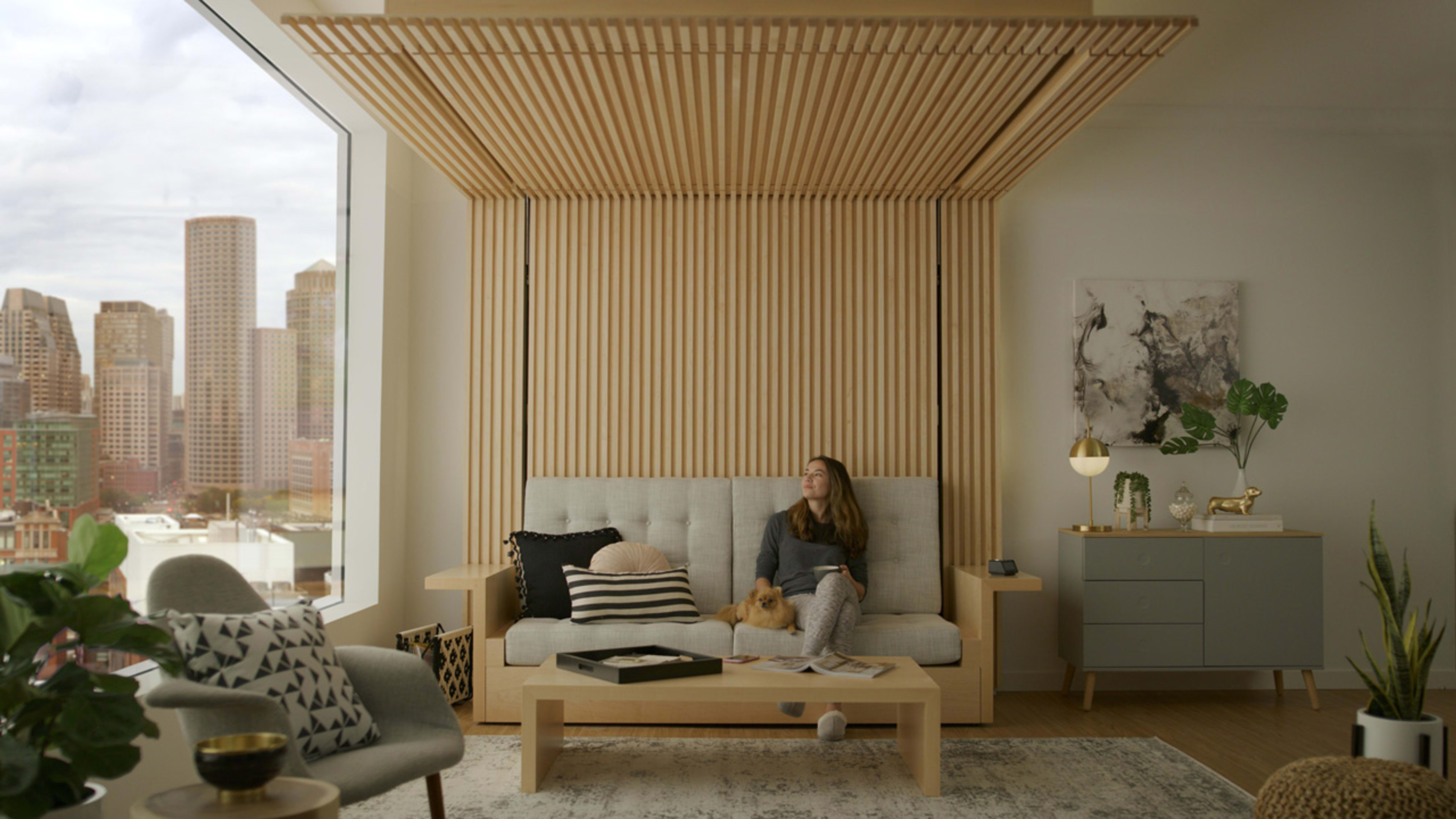It seemed like an impossible idea. In 2014, an MIT project called CityHome proposed a sleek robotic armoire that would live inside your apartment, amplifying a tiny footprint with Jetsonian features like a kitchen and bed that could slide out from seemingly nowhere. It was neat, sure, but experiments like this rarely come to fruition as real products.
Except CityHome did. It became a company called Ori that began selling units to real estate developers a few years ago. Shortly thereafter, it introduced a couple of consumer-facing models, shipping robo-furnishings right to your door. This year Ori announced its biggest news yet: a deal inked with Ikea to offer customizable furnishings to customers in the future.
[Image: Ori]
Today, Ori is announcing $20 million in series B funding, raised from new investors including the Alphabet-owned smart city company Sidewalk Labs and the Ingka Group, the part of Ikea’s sprawling empire responsible for licensing most Ikea stores and building integrated shopping centers. A third new Ori investor, Geolo Capital, is known for hospitality investments, some of which were recently acquired by Hyatt.
What it all adds up to? Ori is working with major new investors from three major real estate sectors—from city planning, retail, and hospitality—which could potentially become clients themselves. And for Ori, a company interested in changing the very nature of buildings with robotics, those relationships could inform the future of its products.
Ori’s 2019 “Rognan” collaboration with Ikea. [Photos: Ikea]
“As we started building these technologies, we learned their biggest impact is thinking about how they can change the way you build a building [in the first place],” says Ori CEO and founder Hasier Larrea. “We’re going to be looking at how we can.”
That means Ori wants to be part of the design conversation as architects and developers begin creating buildings—providing its systems before a building is architected rather than after. Ori wants to be less of an after-market addition to buildings than a fully integrated design feature. In that sense, Ori is becoming an architecture and real estate company without embodying either.
To spur this trajectory along, Ori is bringing on a president, Edwin Hendriksen, who helped lead strategy at the We Company (known best for the coworking spaces WeWork) and, before that, lead development and investment at the early micro hotel concept citizenM.
[Image: Ori]
“Something I’ve witnessed happening for the better part of the last decade is the hotelization of real estate,” says Hendriksen, no doubt referencing the rise of tightly managed, mixed-use spaces being pushed by organizations like the We Company, which blur the boundaries of where you live, work, and play by offering lots of varying amenities under one roof. “And so, of course, as you start seeing different use and flexibility of space, Ori is the first thing I think about being able to transform space and create more efficiencies and flexibilities.”
When I ask Larrea if all this means that Ori might go from its model of selling its units to leasing them, and perhaps offering ongoing subscription models to lease something like Ori desks into a workspace more like a management service than a one-and-done product, he concedes anything is on the table, but that’s not what he has in mind next. For now, he’s just trying to build the relationships to solve Ori’s ongoing chicken and egg problem: Its drop-in robotic furniture can change the way people live at scale, but only if buildings are designed to house these robotics in the first place.
“From the beginning of our vision at MIT, we always thought about the building and city scale, but of course you have to focus on getting the tech and products right,” says Larrea. “But of course, the impact, and way we could make a difference, is changing the way buildings are designed.”
Recognize your company's culture of innovation by applying to this year's Best Workplaces for Innovators Awards before the extended deadline, April 12.
